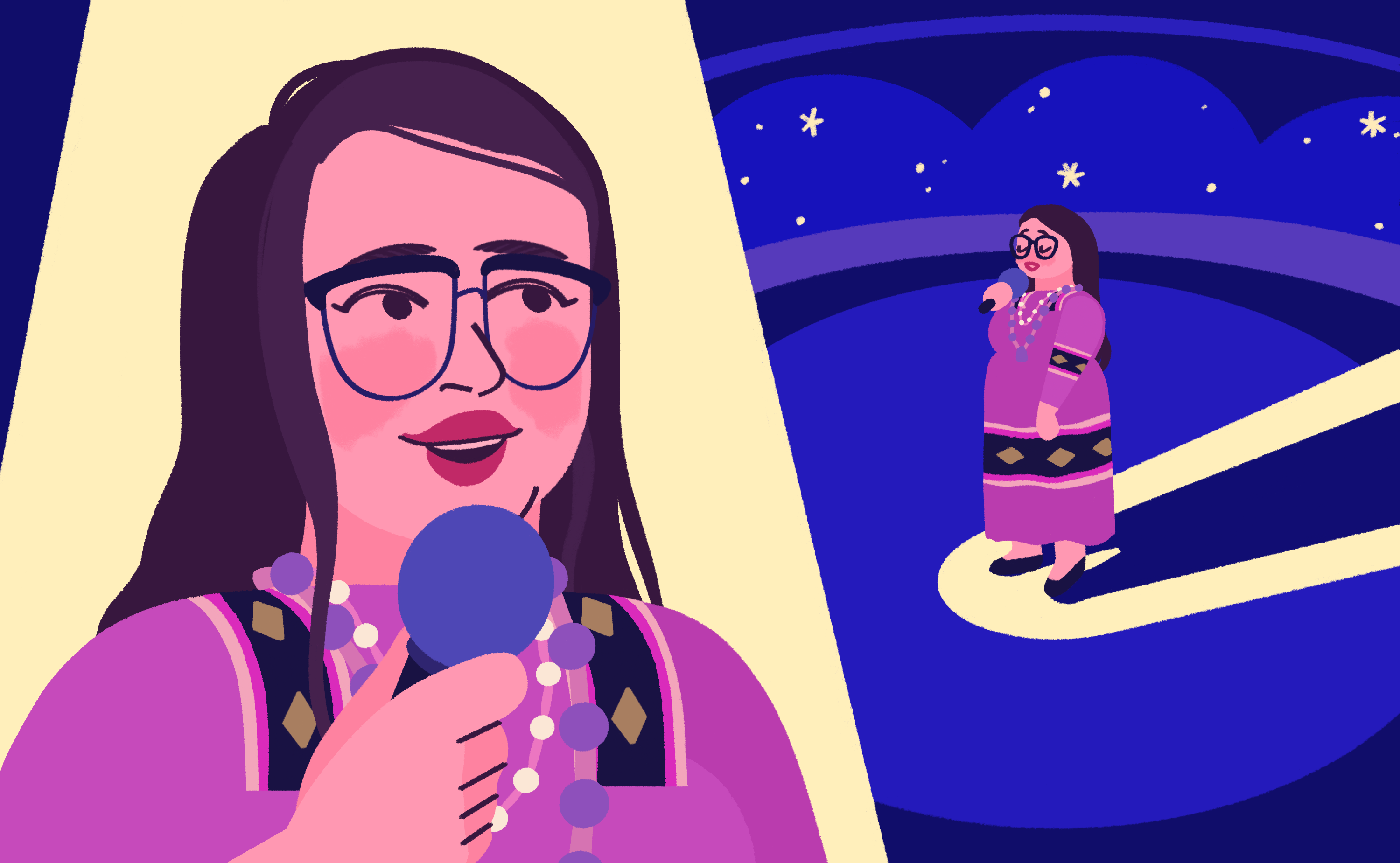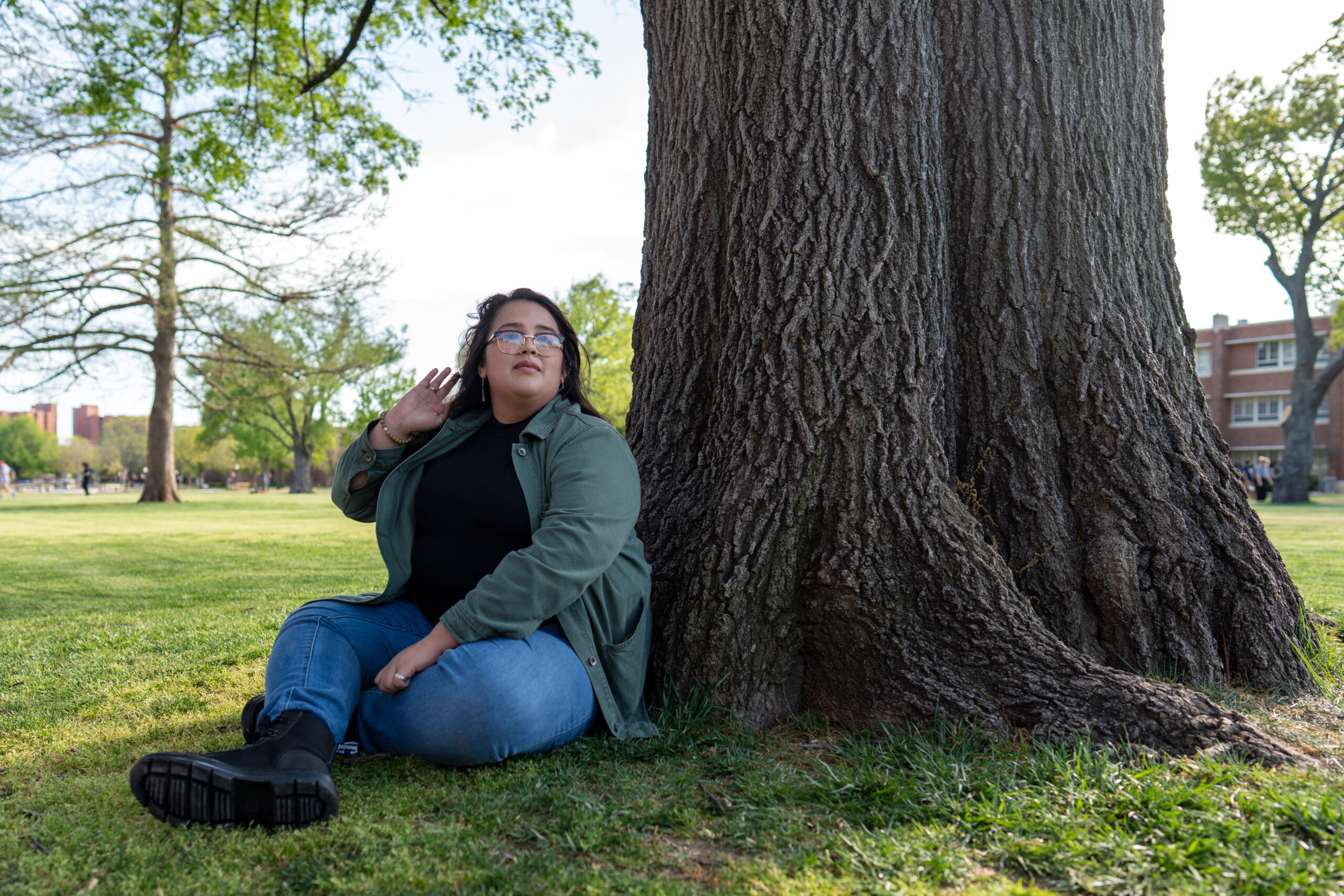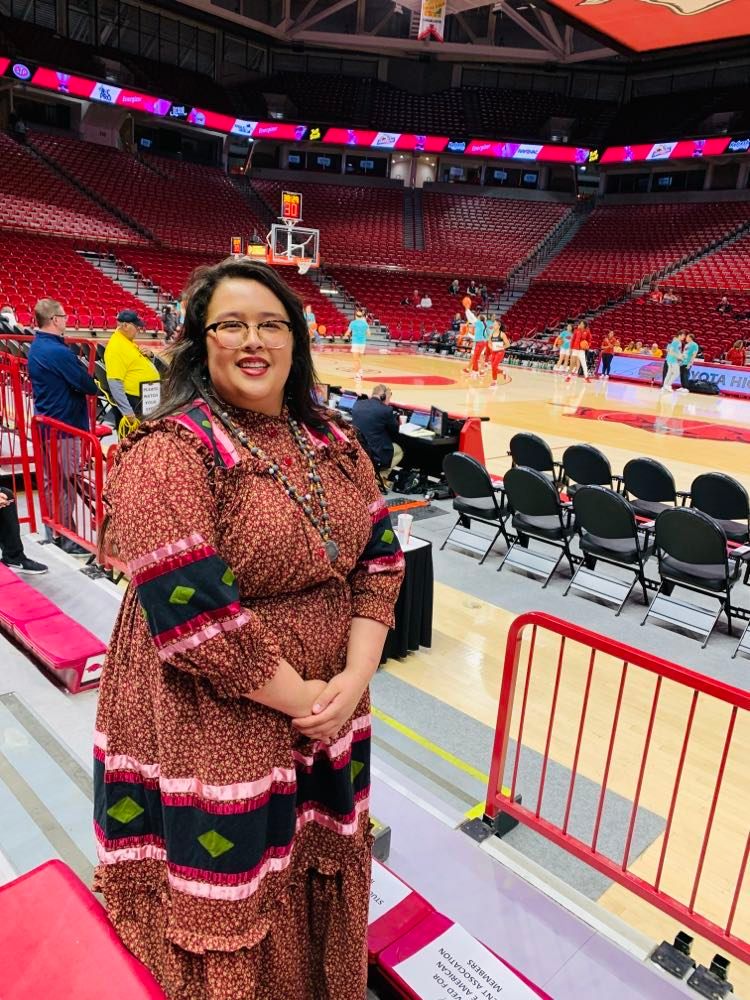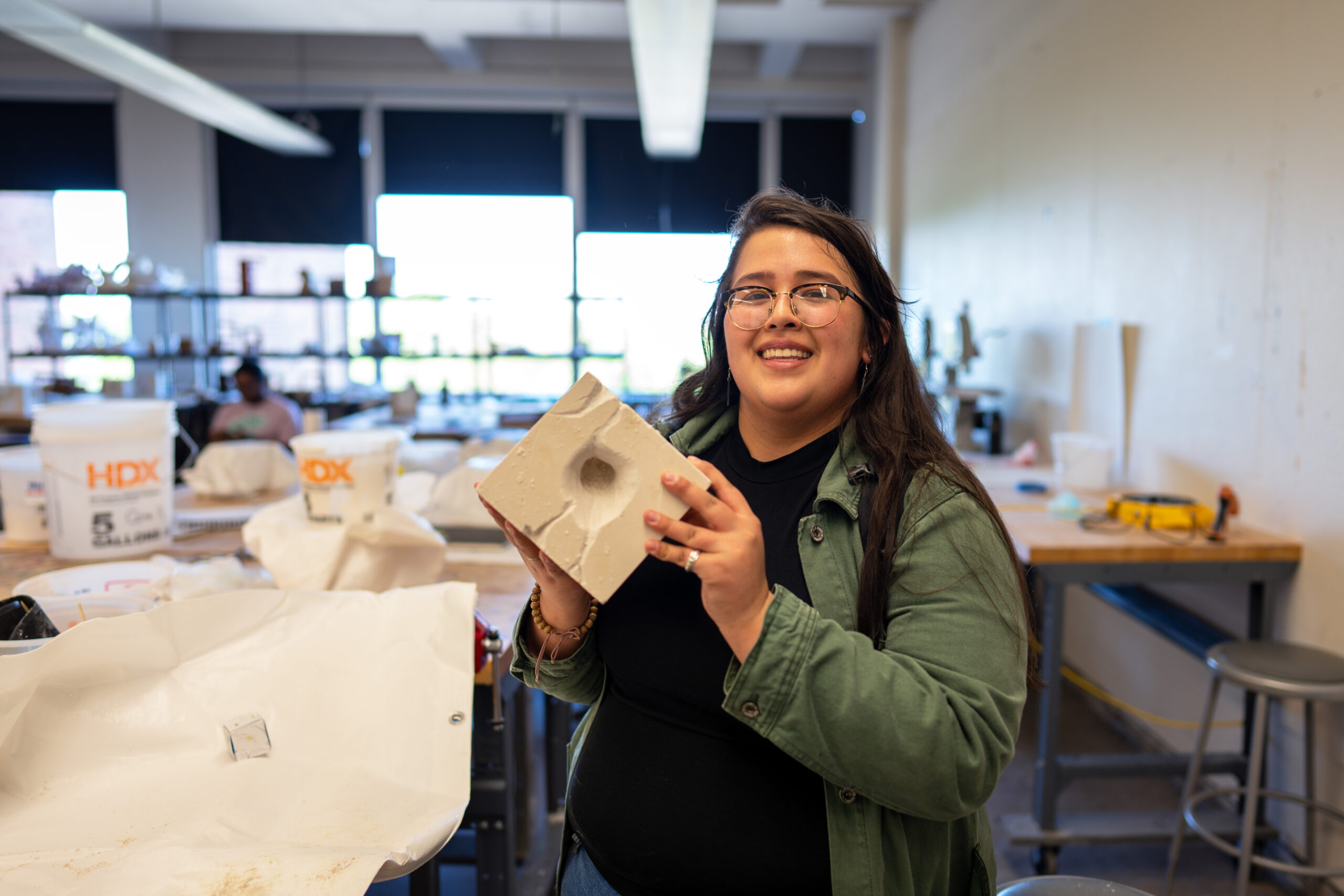
SHIDEH GHANDEHARIZ / NEXTGENRADIO
Cherokee Native inspires a generation through singing the Cherokee language
LISTEN TO THE AUDIO STORY
Click here for audio transcript
[REPORTER] “O-si-o, I’m Micah Fletcher with NextGen Radio Indigenous in Stillwell, Oklahoma.
Ella Mounce has had opportunities some college Freshman would not have, she sang to audiences in her native Cherokee across Oklahoma.
And one of her “proudest” moments was singing the National Anthem at a Hockey game with the Tulsa Oilers”.
[ELLA]: It really started around seventh grade when I joined the Cherokee National Youth Choir and I was able to start learning my language a lot more and it got me a lot more into that musical scene
My name is Ella Mounce and home to me is my family.
I grew up in Stilwell, Oklahoma, in a small native community called Cherry Tree.
My parents say that I’ve been singing since I was three. And I did grow up in a very musical, artistic household.
I feel like they’re very proud of me, which I’m very thankful for because I know some parents are not as supportive. But they’re very proud of me and they’ve let me know and I’m very happy about that.
They told me about the Cherokee National Youth Choir opportunity in which that has been something that’s also kind of in a way become my home because those people who I was around so much they became my family.
And so, learning that language and instilling that into us, it became something that we all took an immense amount of pride in.
When I sang in front of the first Lady it was a very surreal feeling.
How often do you get the chance to sing for the First Lady?
I was both incredibly proud of myself for getting to that point. And also I was incredibly proud of the choir as a whole and the kids who were who I watched kind of grow up.
My dad is really something that helps me get into that headspace of being able to practice music and being able to put my best foot forward.
I grew up basically at his side, at the piano, singing show tunes, gospel songs. I remember whenever I was younger he would literally just stay up for like half the night just reading to playing and singing songs out of like the Great American Songbook. And it was just it was like a kind of a bonding thing between me and him.
I did not get taught the Cherokee language when I was younger
My grandma was the one in our family who could speak fluent Cherokee. But she wasn’t allowed to speak her language and it was very much so beaten out of her by the schools. It instilled a fear in her. She didn’t want her family to have to go through that.
I’ve seen how our language is kind of, I don’t want to say dying, but in a way, it kind of is because people aren’t learning it. It hasn’t been passed down. Now that I’m older, I’m realizing that I really don’t want to see this language die, I want to help. And it’s I want to help see it thrive in the future.
Home is my family, but my family is very centered in our culture.
I have all these aunts and uncles, but they might not be blood related, but they’re still my aunts, uncles and cousins. Almost all of them are also members of the tribe. So we all kind of bond over that culture. So like, we’ll see everybody at like powwows or stomp grounds. So I think that that’s something that also just does tie in just very closely with me being with my family.
I can’t take home with me, but I can carry the feeling. I can remember how I feel whenever I get to talk to my parents on face time or just be able to see them for like just a weekend or something like that.
It’s been hard, but I just kind of have to carry that feeling of home with me and remember that they’re only like a phone call away if I need them.
“[The Cherokee National Youth Choir] is something that really gave me a sense of community and a sense of pride,” Ella says. “It really did kick off me wanting to learn more about my language, learn more about my culture.”
Ella, now an art student at the University of Oklahoma, and away from home and family for the first time, is finding new ways to express and share the love she has for her home.
Ella grew up in a family of very talented musicians and singers in Cherry Tree, Oklahoma. Her father, Michael Mounce, also a singer, is her teacher and her biggest cheerleader. He inspired her to learn how to sing and play guitar.

Ella Mounce sits beneath a tree on the University of Oklahoma campus on Monday, April 17, 2023. “Being up here at Norman, it’s been hard,” Mounce said, “but I just kind of have to carry that feeling of home with me and remember that [my family is] only a phone call away.”
MICAH FETCHER / NEXTGENRADIO
Ella has gone on to sing for a variety of high profile events, performing in front of hundreds. From singing a rendition of “The Star Spangled Banner” in college and professional sports arenas, to singing the Cherokee comfort song “Orphan Child” with the CNYC for First Lady, Dr. Jill Biden, her passion for singing and Cherokee culture shine through in her performances. The only way she could do it, she says, is with the support of her family.
Family has always been how Ella defines a sense of “home.” She is now three hours away from her home, at the University of Oklahoma campus in Norman, Oklahoma.

Ella has opened various sporting events with a Cherokee language rendition of the national anthem, including Arkansas Razorbacks basketball and Tulsa Oilers hockey games.
COURTESY OF ELLA MOUNCE
Since studying at OU, Ella has displayed works of art on campus, from cardboard sculptures to abstract ink drawings. Her inspiration continues to come from her family and her home. Specifically, growing up around Cherokee culture and art.
The Cherokee National Youth Choir performed the song “Orphan Child” for First Lady Dr. Jill Biden, Secretary of the Interior Deb Haaland and Principal Chief Chuck Hoskin Jr. at the Cherokee Nation Immersion School in December 2021.
COURTESY OF AMANDA ABEL
“Almost all of my family are also members of the (Cherokee) tribe, so we all kind of bond over that culture,” Ella says. “We’ll see everybody at pow wows or stomp grounds. So, I think that’s something that also just ties in very closely with me being with my family.”
Alongside her explorations in new artistic mediums, Ella maintains her love for music. Her latest project is writing original songs with her best friend, Garrett Able. The duo is integrating Cherokee language into their guitar and piano focused works. They call this new genre “C-Pop,” a play on Korean language K-Pop.
“Me and my friend were talking like, ‘Hey, how can we get language into this new generation?’” Ella says. “We’re trying to throw around some ideas on how we can start incorporating music and maybe more contemporary songs.”
In all of Ella’s creative work, she seeks to inspire a new generation of contemporary Cherokee arts and she continues to take inspiration from her first music teacher, her dad.
“He is definitely proud of me,” Ella says. “He tells me that he is, and I can see it in his face. I definitely try to make him proud of me in whatever I do.”

Ella works in a variety of artistic mediums, including ink and pen, sculpture and digital.
MICAH FLETCHER / NEXTGENRADIO